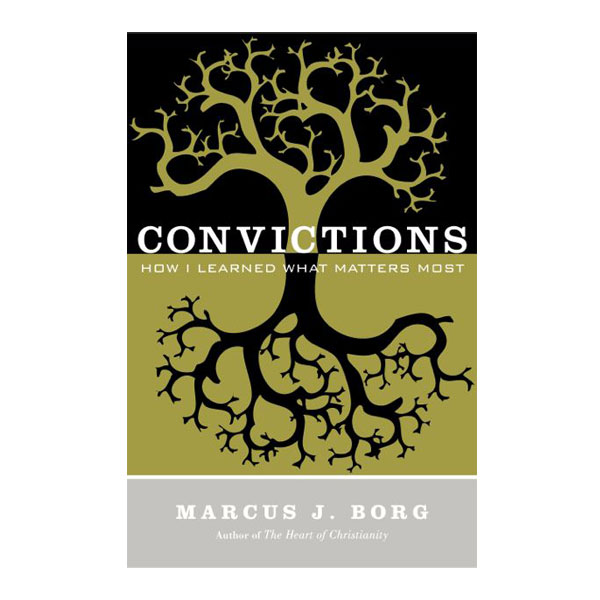Where to buy this book

Renowned scholar Marcus J. Borg has shared his passion for progressive Christianity through studying, preaching, and writing to a diverse community of denominations. At the age of 70, he shared a memoir of how his foundation for his beliefs were formed, and remarkable moments from his long-standing commitment to faith.
His book, Convictions: How I Learned What Matters Most, takes readers on a journey through his experience with modern Christianity that celebrates joy, hope, and transformation.
An Unconventional Journey
Convictions classifies modern Christianity in America into five categories:
- Conservative
- Conventional
- Uncertain
- Former
- Progressive
Readers walk alongside Borg as he transforms from a conventional to a progressive Christian. In chapter two, Faith is a Journey, Borg gives readers a glimpse into his childhood and college years, and how his faith began to evolve. He teaches about Jesus, the Bible, faith, and the modern world while detailing major conversions and shifts that formulated his beliefs and views.
Relevant and Applicable for Modern Christianity
The Bible and other lessons of faith have frequently been used in American politics. Borg addresses current debates surrounding modern Christianity in Chapter Eight and the reasons and questions for the division.
Borg argues that the Bible is political providing examples from the Christian faith, namely God’s passion for justice and the poor. He reinvigorates the Christian call to practice peace and nonviolence in Chapter 10.
This is in direct contrast to the societal norms seen in Christianity, shaped by violence, war, and punishment. Borg states “doing justice, being kind, and walking with God all go together.”
True vs. Literally True
Borg takes his readers deeper by discussing the differing viewpoints between opposing classifications of Christianity. Conservative Christians tend to view the Bible as literal, while Borg and fellow Progressive Christians, believe the Bible can be interpreted in a more figurative sense. This provides more flexibility in understanding the story of creation and is ultimately more applicable to modern society.
Rather than view the entire Bible as the measurement tool for all followers of modern Christianity, Borg places the norm on the example of Jesus. Jesus is the standard for other Christians, the Bible, and other aspects of the faith. Jesus demonstrates the grace necessary to recognize the need of reformation on lessons such as violence, slavery, and patriarchy. The Bible is seen as the “foundational document, but it is not the inerrant and infallible revelation of God.”
What Is Modern Christianity All About?
The final chapter delves into three basic ways to honor and open oneself to God: through prayer, worship, and reading the Bible.
Ultimately, a long, enriched life of faith and learning leads Borg to voice “It’s about loving God and loving what God loves. It’s about becoming passionate about God and participating in God’s passion for a different kind of world, here and now.”
The relevance to today’s world make Convictions a tale worth reading for believers in modern Christianity, and it is no surprise that many find a reason to buy and cherish this book.
Additional Links on this Topic
https://marcusjborg.org/convictions-how-i-learned-what-matters-most/
Study Guide
For those who would like help in understanding the context of Convictions, please download the study guide to follow along with while reading. It would also be greatly appreciated if you could please offer any feedback you have on the guide once you’ve downloaded it. Thank you!
Download the Study Guide






